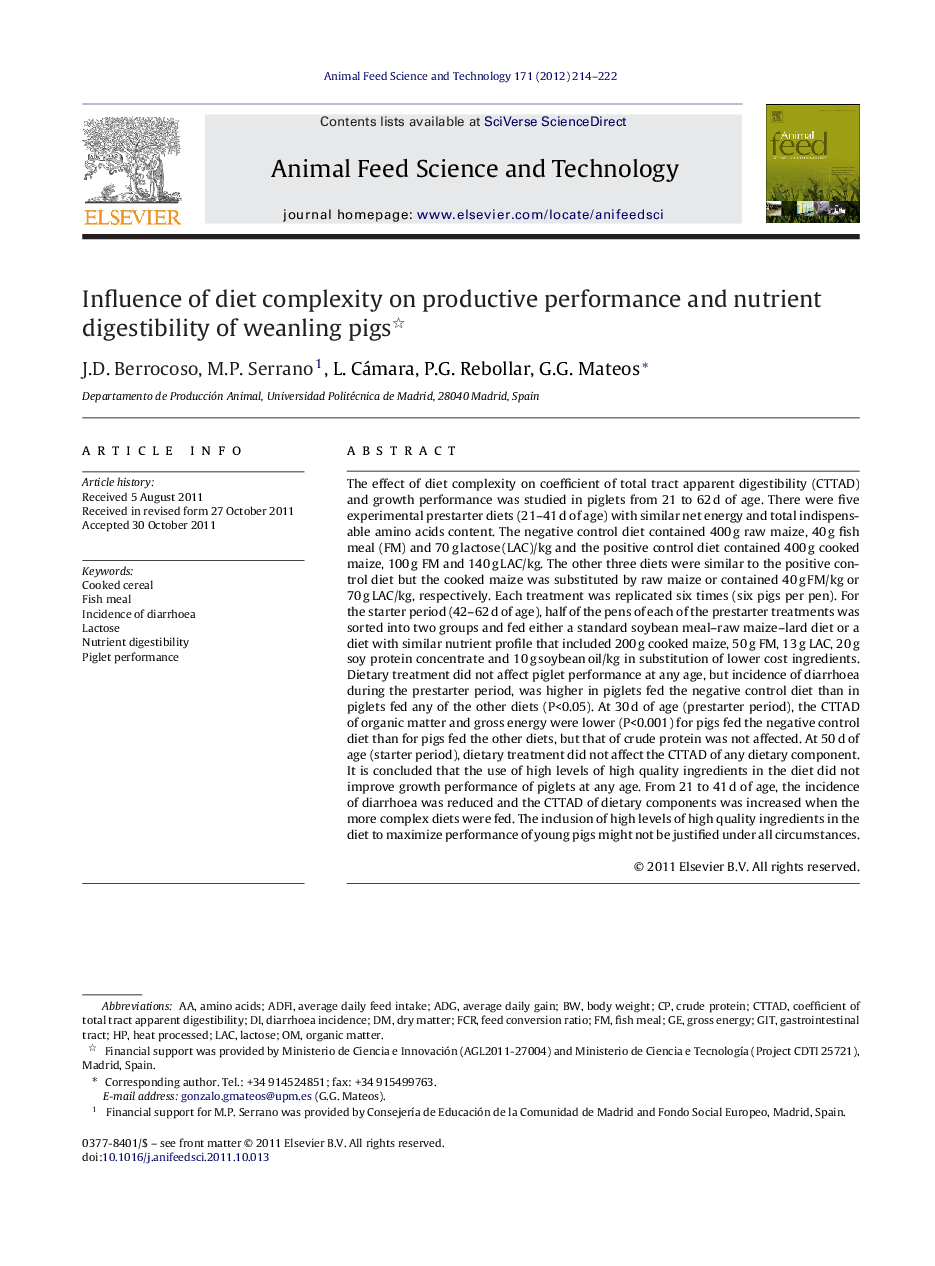| کد مقاله | کد نشریه | سال انتشار | مقاله انگلیسی | نسخه تمام متن |
|---|---|---|---|---|
| 8492210 | 1552423 | 2012 | 9 صفحه PDF | دانلود رایگان |
عنوان انگلیسی مقاله ISI
Influence of diet complexity on productive performance and nutrient digestibility of weanling pigs
دانلود مقاله + سفارش ترجمه
دانلود مقاله ISI انگلیسی
رایگان برای ایرانیان
کلمات کلیدی
CTTADADGADFILACFCRGITAmino acids - اسید آمینه یا آمینو اسیدgross energy - انرژی ناخالصGastrointestinal tract - دستگاه گوارشcoefficient of total tract apparent digestibility - ضریب هضم ظاهری کل دستگاهLactose - لاکتوزorganic matter - ماده آلیdry matter - ماده خشکaverage daily gain - متوسط افزایش روزانهAverage daily feed intake - میانگین مصرف خوراک روزانهfeed conversion ratio - نسبت تبدیل خوراکNutrient digestibility - هضم مواد مغذیbody weight - وزن بدنFish meal - وعده ماهیcrude protein - پروتئین خام
موضوعات مرتبط
علوم زیستی و بیوفناوری
علوم کشاورزی و بیولوژیک
علوم دامی و جانورشناسی
پیش نمایش صفحه اول مقاله

چکیده انگلیسی
The effect of diet complexity on coefficient of total tract apparent digestibility (CTTAD) and growth performance was studied in piglets from 21 to 62 d of age. There were five experimental prestarter diets (21-41 d of age) with similar net energy and total indispensable amino acids content. The negative control diet contained 400 g raw maize, 40 g fish meal (FM) and 70 g lactose (LAC)/kg and the positive control diet contained 400 g cooked maize, 100 g FM and 140 g LAC/kg. The other three diets were similar to the positive control diet but the cooked maize was substituted by raw maize or contained 40 g FM/kg or 70 g LAC/kg, respectively. Each treatment was replicated six times (six pigs per pen). For the starter period (42-62 d of age), half of the pens of each of the prestarter treatments was sorted into two groups and fed either a standard soybean meal-raw maize-lard diet or a diet with similar nutrient profile that included 200 g cooked maize, 50 g FM, 13 g LAC, 20 g soy protein concentrate and 10 g soybean oil/kg in substitution of lower cost ingredients. Dietary treatment did not affect piglet performance at any age, but incidence of diarrhoea during the prestarter period, was higher in piglets fed the negative control diet than in piglets fed any of the other diets (P<0.05). At 30 d of age (prestarter period), the CTTAD of organic matter and gross energy were lower (P<0.001) for pigs fed the negative control diet than for pigs fed the other diets, but that of crude protein was not affected. At 50 d of age (starter period), dietary treatment did not affect the CTTAD of any dietary component. It is concluded that the use of high levels of high quality ingredients in the diet did not improve growth performance of piglets at any age. From 21 to 41 d of age, the incidence of diarrhoea was reduced and the CTTAD of dietary components was increased when the more complex diets were fed. The inclusion of high levels of high quality ingredients in the diet to maximize performance of young pigs might not be justified under all circumstances.
ناشر
Database: Elsevier - ScienceDirect (ساینس دایرکت)
Journal: Animal Feed Science and Technology - Volume 171, Issues 2â4, 10 February 2012, Pages 214-222
Journal: Animal Feed Science and Technology - Volume 171, Issues 2â4, 10 February 2012, Pages 214-222
نویسندگان
J.D. Berrocoso, M.P. Serrano, L. Cámara, P.G. Rebollar, G.G. Mateos,